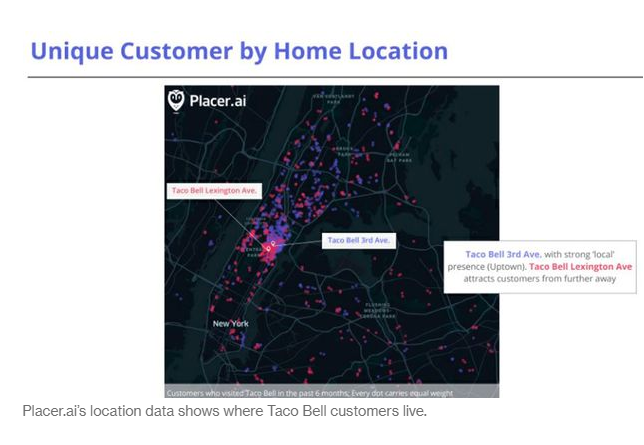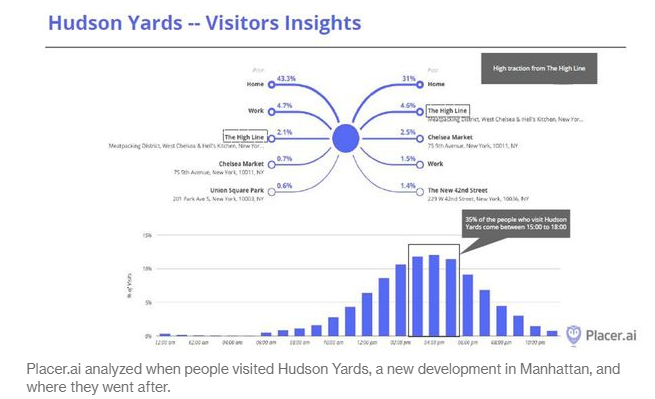Orwell Goes Retail: Stores Now Track Where You Shop... And Sleep
04/27/2019
In news that shouldn’t come as a surprise to anyone, retailers are now tracking not only where are you shop, but also where you sleep, according to a new Bloomberg article.
For instance, Hill Country Galleria in Bee Cave, Texas used information and location data from customers' phones to determine that a lot of shoppers own pets. Using this data, it went on to install water fountains, babysitting stations and photo op stations for customers and their pets. As a result, the time customers spent in the mall grew by 40%.
One shopping Center in Chicago found it was drawing customers from Asian neighborhoods, so it filled one of its vacancies with a high-end Asian specialty grocery. And even Dunkin’ Donuts is getting in on the trend. It employed phone data to make sure that the 278 new stores it was opening wouldn’t steal customers from existing locations.
These few clues that retail owners are getting from customers' phones are one of the last chances brick-and-mortar shops have at trying to salvage their industry. They’re buying this mobile phone data hand over fist in order to help determine where people shop, eat and see movies. They’re also looking to see where customers go before and after going to the mall. It helps them look at personal details and paint a picture of the demographic that shops with them. It also helps them advertise.

But aside from transforming the industry, this is raising privacy concerns. The idea of being tracked – surprise - makes some people uneasy (how that is not "all" is beyond comprehension). All the companies interviewed for the article said that they don’t use any information that can identify individuals, but due to lax regulation, they’re really on the honor system to keep their word. So, we're absolutely positive they're doing the right thing...
This new type of analysis is called location analytics and the worldwide industry is expected to grow to $15 billion by 2023 from $8.35 billion in 2017. More than half of the retailers surveyed last year said that they use these firms to collect the data.
lan McKeon, chief executive officer of Alexander Babbage, which packages and sells location data said: “Historically, we’ve only been able to look at theoretical behaviors of people. Now we can look at where we’re actually drawing from, and we discovered that the trade areas look nothing like we used to think they did.”
Smartphone apps gather data throughout the day, dropping pins on locations and collecting timestamps and device IDs. Aggregators buy this data and sell it to analytics companies that clean it up for retail to use. Packages for retailers run as low as $15,000. Aggregator UberMedia says it looks at 800 million active devices per month and has 14 trillion total location observations deriving from four and a half years of historical data. To help get details including the age, income and education of people, firms connect the phone's location at night - i.e. when you're home and in bed - with US census data.
"We don’t have any information about who owns the device, so the way that we contextualize the information is we look at where the phone sleeps at night," McKeon continued.
And it isn't just your location that is being tracked. Psychographic data, including a person‘s behavior and spending habits – as well as their social media chatter – is also being tracked.
Spatial.ai is a startup that studies online conversations and collects location data for 72 categories, helping businesses determine whether specific personality types correlate with sales. For instance, for "hipsters" these products often include antiques, vinyl records and coffee.
Shopping landlord Brixmor Property Group Inc. worked with the start up to identify a lot of talk about "girls night out" in the neighborhood of one of its shopping centers in Newtown, Pennsylvania. As a result, Brixmor opened a "female friendly organic concept" restaurant in the area. Brixmor CEO Jim Taylor said: “You get a much better sense of the commuting patterns of the community that utilizes your center, and it’s oftentimes quite revelatory.”
But privacy concerns remain. As the market is more competitive, providers have started to cut corners. Laura Schewel, CEO of StreetLight Data Inc. said her friend lost a potential client to a competitor because it refused to sell individual raw data, versus aggregated data, on groups of people.
Taylor concluded: “We don’t want to use technology in a way that erodes trust. As a shopping-center owner, you want to bring in vibrant uses that generate lots of sales, lots of traffic and allow you to grow rents over time."
And yet one wonders just how much "trust" shoppers would have if the stores were honest and forthcoming, and disclosed all the different ways they strip their clients of their last shred of privacy.https://www.zerohedge.com/news/2019-04-27/orwell-goes-retail-stores-now-track-where-you-shop-and-sleep


沒有留言:
發佈留言